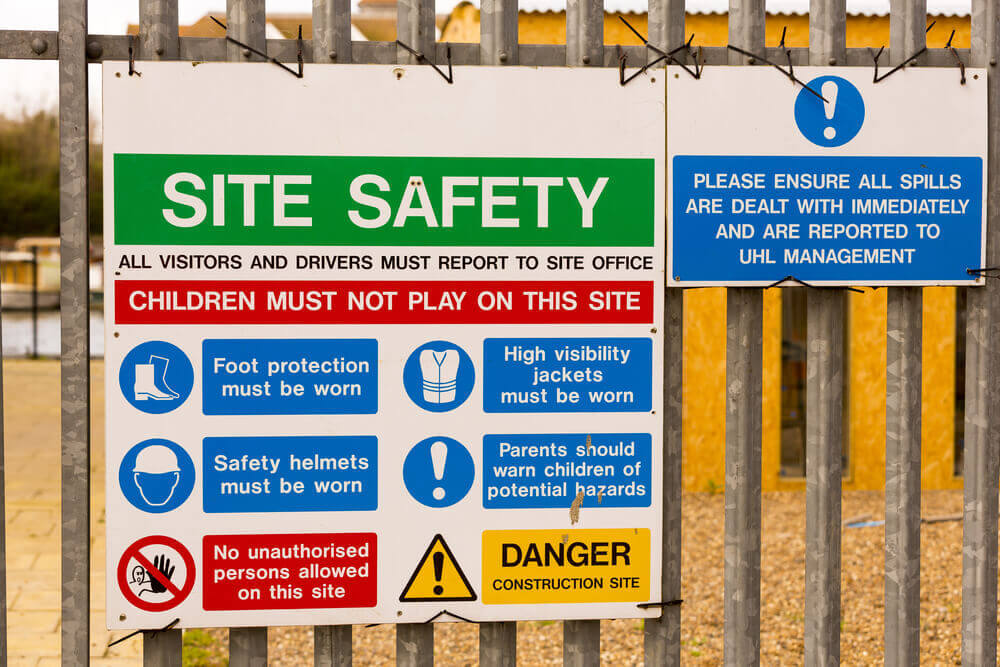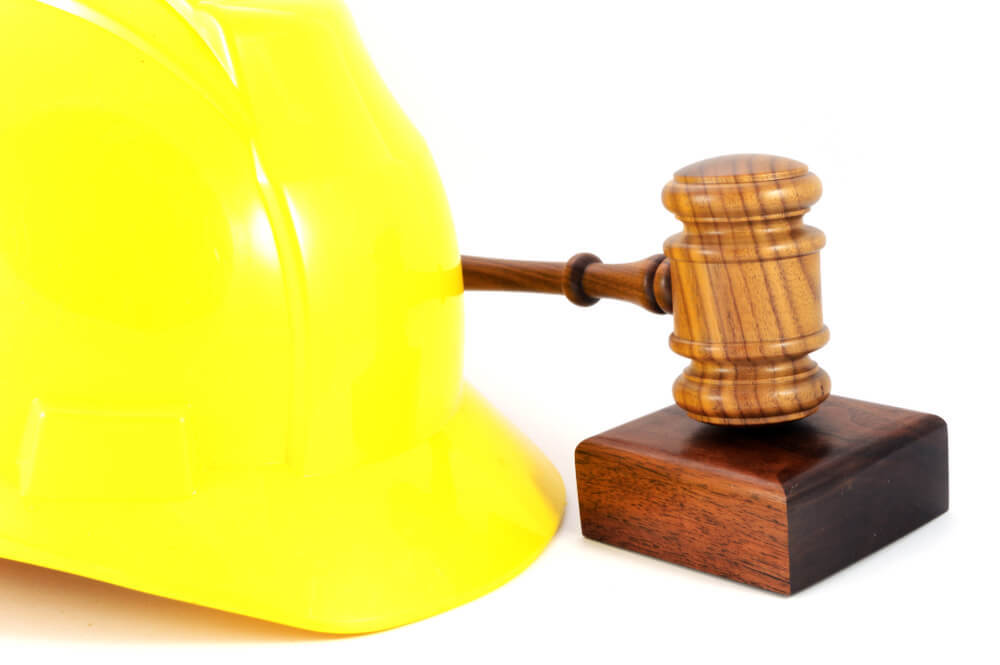
Employers in Qatar are responsible for ensuring the safety of all their employees when they are at their workplace, and must take all precautionary measures to protect them from any kind of injury or illness that may get as a result of the work they do, may arise from a defect or malfunction in the equipment or machinery they operate, or may occur from accidents and fires.
It is also the employer's responsibility to inform their employees when they start work of any hidden or potential dangers that may arise due to the nature of their work or the equipment and machinery they use as part of the job.

A safe workplace helps retain staff, maximise productivity, minimise employee injury and illnesses, minimise sick leaves and absenteeism, reduce the costs of injury and workers’ compensation, meet legal responsibilities and employee obligations. (Alsco)
The International Labour Organisation defines a work-related injury as an:
unanticipated and unplanned occurrence including acts of violence resulting from, and in connection with work which causes, one or more workers to incur a personal injury, disease or death.
Employers must take great care in ensuring the safety of their employees because work-related safety hazards can not only lead to disabilities and deaths, it can also cause a decrease in the productivity of work as employees may be off from work for a while or you may lose skilled workers and have to hire others. NCBI)
Of course, this does not mean that employees don't have any responsibility towards work safety. It is also their duty to follow the rules set forth.
Work safety hazards in Qatar can comprise of unsafe working conditions, working at heights, poor sanitation, environmental hazards and workplace violence.

According to the Qatar Labour Law no. 14 of 2004:
*Any employer who violates the provisions of Articles no. 103, 104 and 105 shall be penalised with imprisonment for a period not exceeding one month and with a fine of not less than QR 2,000 and not exceeding QR 6,000 or any of these two penalties.
**Any employer who violates the provisions of Article 106 shall be penalised with a fine of not less than QR 2,000 and not more than QR 5,000.

Treatment for any injury that takes place at the employee's workplace that may be caused by an accident during their duty hours must be covered by the employer. This also includes an injury that is incurred on the way to or back from the workplace, if that trip is not diverted or interrupted from the employee's normal route to their workplace.
Any employee that cannot return to work because of their work-related injuries must be provided full salary by the employer for the first six months of medical treatment. If the employee is not fully recovered after six months, then the employer must pay half the employee's salary until full recovery or until the employee is termed as permanently disabled, in which case their family will be entitled to full compensation.
If an employee dies as a result of a work-related injury, the employer must fully compensate the deceased's family. (Hukoomi Qatar)

Workplace disputes also come under workplace safety and it is the employer's responsibility to take the required action to prevent any kind of workplace dispute, but in the event that it does take place, and the matter is not resolved between the employer and the employee, then the employee has a right to file a complaint with the Ministry of Administrative Development, Labour and Social Affairs (ADLSA).
If the matter is related to human rights violations, then the employee can file a complaint with the National Human Rights Committee. (Hukoomi Qatar)
In the event that an employer doesn't take the necessary safety precautions in the workplace, thereby, causing risk and danger to the employees' health and safety, the employees can report the issue to ADLSA. The ministry will investigate the matter and has the authority to either completely or partially shut down the workplace, or stop the use of the machine/s until the safety hazard is removed completely. (Hukoomi Qatar)

In addition to Law no. 14 of 2004, relevant Qatari authorities like ADLSA and MoPh are making other provisions to ensure workplace safety is applied in all sectors of Qatar's businesses.
Currently, ADLSA is working towards implementing a unified platform for complaints and disputes, which will be launched soon. This unified platform will allow employees to submit complaints related to work issues. (QNA)
In 2020, the Occupational Safety and Health Policy in Qatar was issued by ADLSA and MoPH to protect employees' health by minimising the hazards and their causes in the work area to prevent injuries, accidents or illnesses. This policy is for all employers and employees working in all sectors in Qatar and is aimed towards enhancing workplace health and safety services at all levels. (MoPH)
In April 2019, ADLSA signed a decree to regulate the conditions and procedures of Joint Committees set up to bring management and employees to the same table so they can communicate over workplace issues. These include work organisation, risk and hazards prevention tools, how to increase productivity and development, employees’ training programmes and how to improve the level of adherence to occupational safety and health rules and regulations (GCO).
In March 2018, Labour Dispute Resolution Committees were set up to help improve access to justice by settling labour disputes within three weeks of an employee filing a complaint. Complaints can also be raised through workers’ representatives who meet regularly with MADLSA.

It is the employees' duty to ensure workplace safety especially since all health and safety instructions have been given to keep them safe and protected from injury, accidents or illness. They must respect and follow the health and safety procedures as they are for everyone's wellbeing and benefit.
According to Labour Law No. 14 of 2004 (article 101), an employee must not commit any action with the intention of hampering the employer's instructions or orders regarding the health and safety of themselves and others. An employee must also not commit any action with the intention of damaging or causing a breakdown of any appliance, equipment or machinery in the workplace.
It is also the employees' responsibility and duty to use the safety gear provided to them so they can stay safe while on the job, but many times, it has been seen that these employees are performing their duties without using the safety gear provided to them because they don't think it's necessary and because they find it uncomfortable. All this safety gear and equipment has been provided to employees for a reason: to protect them from work hazards. Therefore, it is of utmost importance that employees follow all occupational safety and health instructions given by the employer to protect themselves and others in the workplace from work-related injuries and diseases. (ILO)
Sometimes, employees neglect to follow the safety measures or use the provided safety gear simply because it is a small task and they think nothing serious will happen. It is also the employees' responsibility and duty to use the provided safety gear and strictly follow the measures as this is not just the company's rules but this policy is to protect them as well.
Sources: Hukoomi Qatar; NCBI; Alsco; MoPH; GCO; ILO; QNA
Cover image credit: Shutterstock
What do you think of these measures? Are they enough? Do let us know what you think in our Comments section below. Like and share the article - it keeps us going!
Follow us on our social media channels:
![]() @ILQlive
@ILQlive
![]() @ILQlive
@ILQlive
![]() @ILoveQtr
@ILoveQtr
![]() ILoveQatar
ILoveQatar

You have successfully registered your account!
Please confirm your e-mail address by clicking on the URL sent to you.The e-mail usually arrives in 5-10 minutes.
How ajeeb was that!? Thanks for contributing to our community! Your post will appear after we take a quick look!